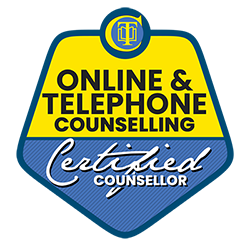Maximising Your Therapy Experience: 5 Practical Tips
Skyla Counselling
5/15/20253 min read


How to Get the Most Out of Therapy
Taking the first step towards therapy is no small feat. If you've made an enquiry or booked your first session—well done. That decision alone takes courage. You’ve committed your time, energy, and money to the process. But now you might be wondering: What happens next? And more importantly, how can I get the most out of it?
Whether you're just starting or already a few sessions in, here are five helpful tips to support you on your therapeutic journey.
1. Show Up Consistently
Therapy works best when it becomes part of your routine. Just like any meaningful change in life, it requires commitment, intention, and consistency.
Protect your scheduled appointments and treat them as a priority. Showing up regularly helps build momentum and deepens the relationship with your therapist. The more often you’re able to connect, the more your therapist can really get to know and support you.
2. Challenge Yourself—When You're Ready
Before starting therapy, many people feel pressure to share everything right away—even the parts that feel uncomfortable or painful. But there’s no rush.
You can think of your mind like a house with rooms that have been locked for a long time. It’s okay to take time before inviting someone in. Trust is something that builds gradually.
That said, when you're ready, gently challenging yourself to explore those “locked rooms” can be powerful. Letting your therapist in, even just a little, allows light to shine into those spaces. Together, you can explore what's there, where it came from, and how to move forward.
3. Practice Vulnerability
Therapy is one of the rare spaces where you can be fully yourself. It’s private, confidential, and free from judgement (with a few legal exceptions around safety).
Bring your whole self to the session—the thoughts you usually keep hidden, the stories you rarely tell, the parts of you that feel messy or misunderstood. Your therapist is there to hear it all and help you make sense of it. Nothing is too small, too strange, or too much. Every part of you is welcome.
4. Speak Up If Something Doesn’t Feel Right
Therapy is a collaborative process. If something isn’t working for you—say so. Whether it's an exercise you don’t enjoy, a topic you’re not ready to explore, or simply not feeling connected to the way things are going, your feedback is essential. You won’t offend your therapist; in fact, they’ll likely welcome your honesty.
Think of it like being a passenger on a road trip. If you don’t say anything, you might end up heading somewhere you didn’t choose. Sharing what feels right or wrong helps steer the journey in a direction that works for you.
5. Keep the Work Going Between Sessions
Therapy doesn’t end when you walk out of the room (or log off a call). In fact, the time between sessions plays a big role in your progress. Ask yourself: What can I do outside of therapy to support my growth? It might mean reflecting on what came up in a session, writing things down, observing your thoughts and behaviours, or even just noticing how you feel. Small insights and actions outside the therapy room can make a big difference over time.
Your therapist can help you explore what kinds of practices might work for you—whether that’s journaling, mindfulness, or simply taking time to check in with yourself.
Final Thoughts
Starting therapy is a brave and meaningful step. These five tips are designed to help you feel more confident and empowered along the way. Ultimately, your therapy journey is your own—and the more actively you engage with it, the more you’re likely to get out of it.
If you’ve just started or are considering therapy, I hope this blog post has helped you feel a little more prepared.









